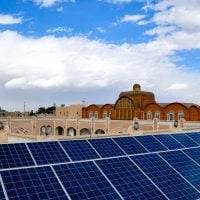Deadline: 6-Feb-23
The Legal Education Foundation has launched the Stronger Sector Funding.
The Legal Education Foundation believes that a strong civil society is essential to achieve their vision of a just and fair society. This grants programme offers flexible funding for organisations using the law to promote social justice. That may be through offering legal advice or training but it may also be through charitable campaigning to protect, promote or develop the law to meet the needs of communities. They are especially interested in how the law can be used to build power in communities that have been historically oppressed. In shortlisting, they will prioritise organisations with key qualities that they value.
Priorities
- They always receive more applications than they are able to fund so they have to make difficult decisions to spend their funds as effectively as possible.
-
They use these overriding criteria in assessing applications:
- Degree of need – areas of societal need where law as tool to bring about positive change and to prevent harm is under-resourced, under-utilised and under-developed and where the Foundation has a distinct role to play.
- Degree of benefit – where law has the potential to bring about significant positive change and to prevent harm in ways that are sustainable and widespread.
-
In deciding which applications to shortlist, they particularly value the following qualities in organisations:
- Lived experience at the heart of strategy and leadership.
- Accountability to communities served by the organisation.
- Connections between everday injustice and advocating for change.
- A commitment to learning, including a reflective approach to improving their own practice.
- Supportive, inclusive environments for staff and volunteers.
- They acknowledge that organisations have different approaches and definitions of lived experience. They expect to see organisations being thoughtful about how it is meaningfully incorporated in their area of work.
Programmes
Under their work to support a Stronger Sector, they run two further programmes to which eligible organisations can also apply.
- The Justice First Fellowship is training the next generation of social justice lawyers. You can apply to host a Justice First Fellow as well as apply under one of their other programmes
- Justice Together is a collaboration between LEF and other funders, which has a 10-year vision of transforming access to justice in the UK immigration system.
Funding Information
- This Committee makes decisions on applications for up to £350,000.
What they can fund?
-
They can fund:
- Staff costs
- Direct costs such as travel, subsistence or events
- Overheads
- Small capital items such as IT equipment
- In delivering these activities, they welcome collaborations between organisations. They also recognise the role of second-tier organisations (which support other organisations instead of people directly) in developing co-ordinated responses.
- They are interested in the outcomes you would like to achieve and a broad pathway to getting there, so the grants they make under this programme are flexible. They encourage organisations to include a reasonable overhead contribution.
Eligibility Criteria
- They fund legally constituted organisations undertaking charitable work in the UK. While the majority of grant recipients will be charities, they can also fund limited companies (including CICs) and private law firms for activities that advance the LEF’s charitable objects and are not profit-making.
- Applications can include all costs related to achieving the hoped-for outcomes, including staffing, volunteer expenses, consultancy, travel, venue hire and a reasonable contribution to overheads. They mostly fund revenue costs but can cover modest capital expenditure directly related to the work, such as a computer for a new staff member.
Ineligible
-
They will not fund:
- Work that does not advance LEF’s charitable purposes or strategic objectives
- Work that falls outside the Charity Commission guidance on campaigning and political activity
- Work that has already taken place.
- Work that does not have a direct benefit in the UK.
- Projects related to commercial law.
- Awards, prizes or one-off events that are not part of a broader programme the Foundation is supporting.
- Projects where a LEF grant would directly replace or subsidise government, legal profession or university funding, including the costs of law clinics.
- Infrastructure for pro bono legal advice.
- Capital expenditure on buildings and vehicles.
- General fundraising appeals.
-
They are unlikely to fund:
- Organisations with fewer than three Trustees, company directors or partners.
- Organisations with more general reserves than stipulated in their reserves policy.
- Organisations that are in serious financial deficit.
For more information, visit Legal Education Foundation.









































